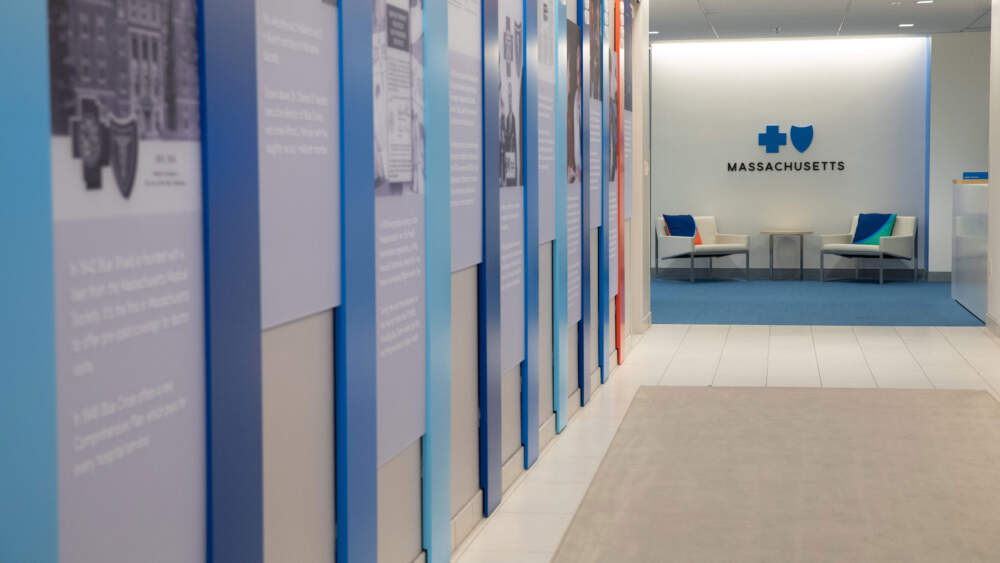Advertisement
Blue Cross halts controversial colonoscopy changes after backlash from doctors

Blue Cross Blue Shield of Massachusetts is putting the brakes on a controversial policy to restrict the use of anesthesia during colonoscopies.
The policy took effect Jan. 1, drawing outrage from doctors who worried it would slow their productivity and discourage patients from getting a potentially life-saving procedure over fears of discomfort and pain. Doctors had lobbied Blue Cross officials to reconsider the changes, WBUR reported earlier this month.
On Wednesday, Blue Cross leaders said they decided to pause enforcement of the policy — indefinitely.
“It has become clear to us that there is confusion about the policy and the reasons for it,” Dr. Sandhya Rao, the company’s chief medical officer, said in a statement.
“Given the confusion, we’ve decided to pause enforcement of this policy while we work to make sure our members understand all their options for colon cancer screening and sedation and that they feel confident they’re getting the care that’s best for them.”
Rao said the company’s goal is to make sure all patients receive the appropriate level of sedation, consistent with national guidelines.
Blue Cross has promised to provide 90 days’ notice before making any further policy changes.
At issue was the level of sedation that patients receive during colonoscopies and other similar procedures. Many doctors and patients prefer anesthesia, also known as deep sedation, which puts patients to sleep. Gastroenterologists say using anesthesia often allows for more efficient and higher-quality exams.
But Blue Cross officials had argued that many patients don’t require anesthesia and can safely be examined while sedated but still awake, which is known as moderate or conscious sedation.
Blue Cross had planned to deny anesthesia coverage for patients who didn't meet certain criteria, such as having chronic conditions or a documented fear of medical procedures.
Dr. Lauren Bleich, president of the Massachusetts Gastroenterology Association, said the policy increased barriers for patients while making the medical system less efficient. She applauded Blue Cross’s decision to pause the changes.
“It's caused a lot of confusion, a lot of angst,” she said. “Some patients have decided to cancel or postpone their procedures.
Dr. Barbara Spivak, president of the Massachusetts Medical Society, said Blue Cross’s decision to pause the policy will help patients and health care providers.
“Patients should have agency, with input from their trusted physician and care team, over the method of sedation used, a key step in helping to alleviate apprehension and fear that for many patients could be a barrier to getting a procedure done,” she said.
Colon cancer screenings are recommended for adults aged 45 to 75. While home tests can help detect cancer, colonoscopies are considered the gold standard for identifying cancer and preventing deaths.
People at average risk of colon cancer are advised to get colonoscopies every 10 years, though some are screened earlier and more often.
Patients must prepare for the procedure by fasting and taking laxatives. During the exam, doctors insert a long tube with a camera into the anus, inflate the colon and search for polyps.
In Massachusetts, anesthesia is used in most colonoscopies and other similar procedures, called endoscopies, though there is wide variation across different hospitals and procedure centers.
The use of anesthesia adds anywhere from $150 to $1,500 to the total cost of an endoscopy procedure, according to national estimates. It also requires that an anesthesiologist or nurse anesthetist be in the procedure room to monitor the patient’s vital signs, while a gastroenterologist examines the colon.
Blue Cross, the state’s biggest insurance company, covers more than 74,000 such procedures annually.
“It’s true that a colonoscopy is more expensive if there's an anesthesia provider providing the sedation,” said Dr. Richard "Max" Tilson, a gastroenterologist. “But the test is safer and better if there's someone providing that kind of level of care.”
Many people are afraid of getting colonoscopies, Tilson said, but using anesthesia often helps.
“We had come up with a solution that was working for most people,” he said. “When you rip that solution away, people are going to get very nervous and scared.”
This article was originally published on January 24, 2024.
